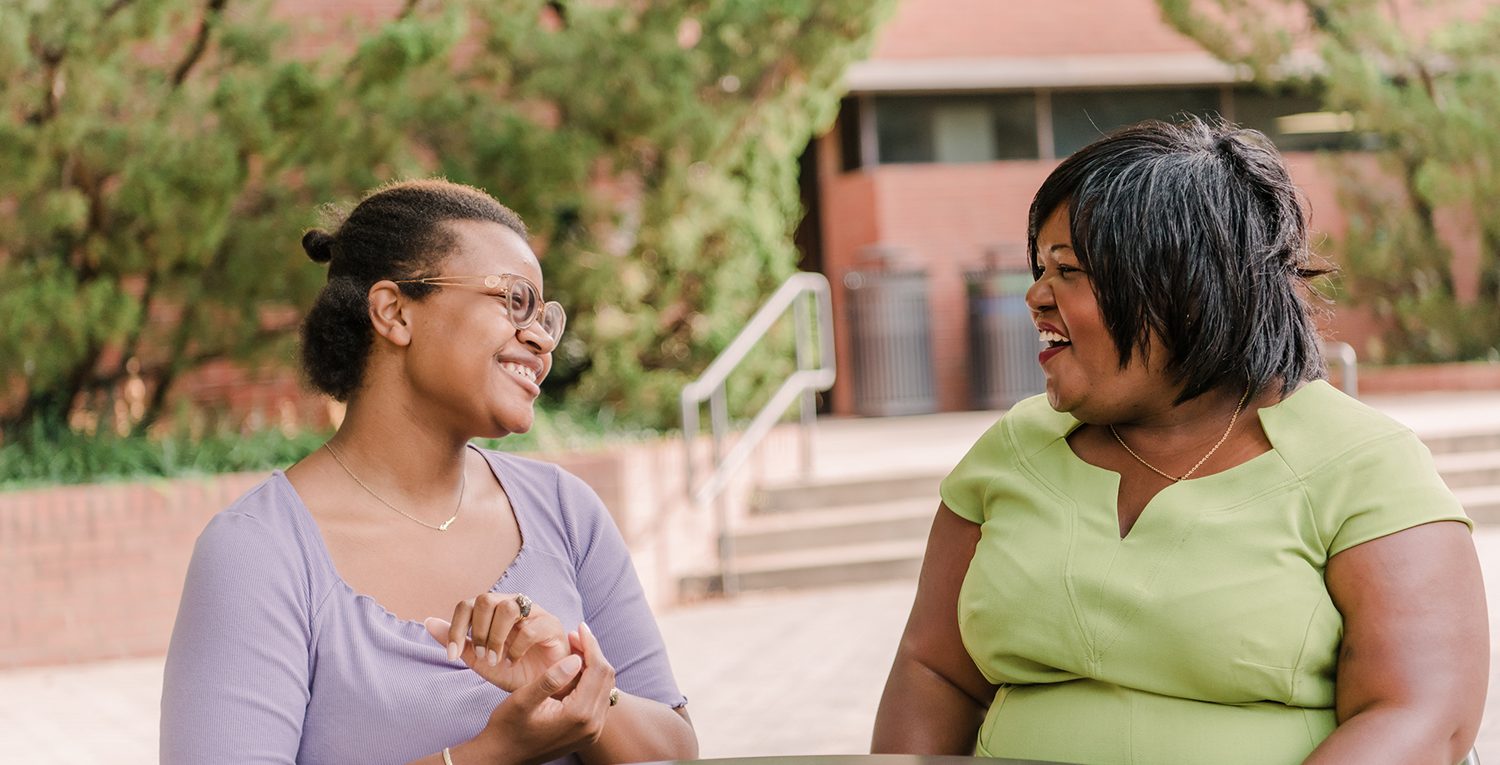If you had the chance to interview someone you look up to, what would you ask? Sydney Fryer ’22, psychology, had the opportunity this fall when she sat down for a chat with fellow Sondheim Scholar Alicia Wilson ’04, political science. (The Sondheim program is celebrating its 20th anniversary this year, by the way!) Fryer came ready to find out more about Wilson and her trajectory from growing up in Baltimore City to being a Retriever (and winning a prestigious Truman Scholarship), to becoming vice president for Economic Development at Johns Hopkins University.
Sydney Fryer:
I, like you, am a Baltimore girl. The city has changed a lot since I was a child. What is your view about all the development that happened over the years in Baltimore?
Alicia Wilson:
Growing up in Baltimore, I’d hear about development projects at Harbor East but I didn’t have any real concept of what it meant other than brick and mortar. Development is complicated; historically development has been about the building of buildings rather than the building of community.
But the reality is, there are local people living adjacent to those developments and they should be part of the calculation of how we design, create, and impact the existing landscape. As we think about development in the city, we always need to keep an eye on what is good for the people.
I think everyone agrees vacant homes need to be developed. Life needs to be developed. Things need to be developed. Even if they were great at their time, things evolve. Cities evolve. The needs of people evolve.
Fryer:
What are some things college students can do to help the state of things when we find they are not up to code in our city?
Wilson:
Students have the luxury of time, passion, and resources. You’re in a place that allows you to look at a problem, learn about it, and have a great amount of time to figure out how to solve it. Students have a huge role in changing things and shaking it up. Don’t diminish your youth and ability to bring forth a new, fresh perspective on things people have been looking at for years.
Pick the problem you are passionate about and apply what you are learning about. Make the uncomfortable statements. Learn through the process. Take a position and advocate; be open to having your position challenged and shifted to get the results you want.
Fryer:
Is being a public servant hard?
Wilson:
There are enormous challenges out there but I find joy in serving. You have to take the time to replenish yourself. Many times you will want to solve everything with a sense of urgency because you believe the work demands it. But the reality is, you need to be a soldier in that fight for a long time. You can’t burn yourself out at the expense of a cause. You have to pace yourself.
Fryer:
How did being a Truman Scholar shape your journey?
Wilson:
Being a Truman Scholar really opened me up to thinking about how I see issues in my community on a much more national/global scale. Food deserts aren’t just about being very neighborhood-centric. It’s about what happens on the national scale and what happens on the global stage which allows food deserts to happen in Baltimore. We have to see the interconnectedness between our plight here and the plight of people in rural America and across the world. The Truman Scholarship gave me a big platform to work on these issues and help create positive change for all people in our country.
Fryer:
What was the greatest takeaway from all of your education?
Wilson:
My time at UMBC was blessed because I was able to be friends with and be mentored by Walter Sondheim. He was vibrant with passion, vigor, and intellect. Walter was thoughtful about how he was going to contribute to the city and the world in a way, I think, which would ignite young people today. He didn’t have a self-serving agenda. He was pure about being effective in the world.
I think understanding to live with purity in service to others was something that gelled at UMBC, which I think has been helpful.
*****
Header photo by Marlayna Demond ’11.
Tags: CAHSS, Fall 2019, Impact, Sondheim Scholar

